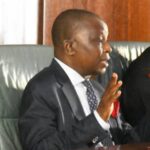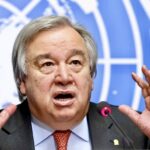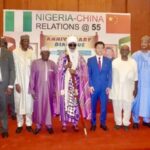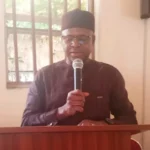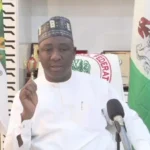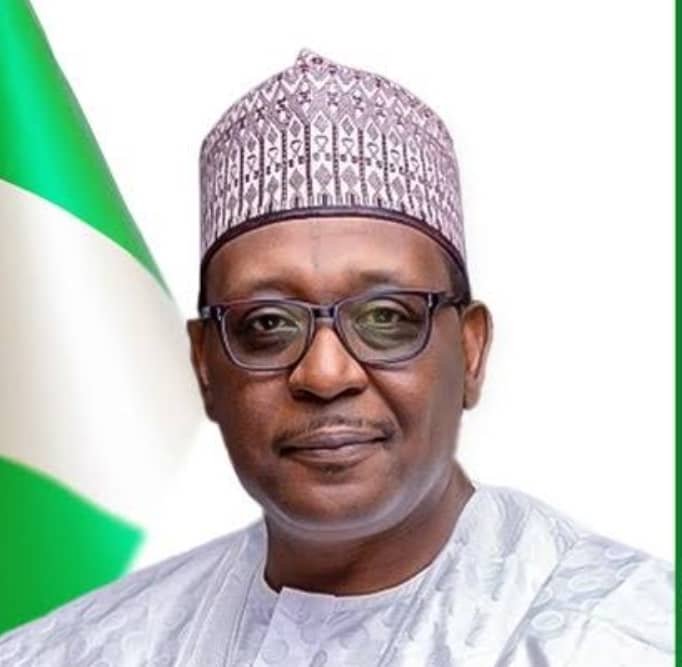By Folasade Akpan
As Nigerians revel in the nation’s 25 years of uninterrupted democracy, a cross section of citizens, including stakeholders in the health sector have expressed different views on how the sector fared.
Mr Chibuzor Akpa, a businessman, said the years of uninterrupted democracy has been good for the health sector as it has seen changes that would otherwise have been absent had the nation continued to tow the line of military rule.
According to Akpa, the re-birth of democracy in 1999 brought about health insurance for Nigerians, which has helped to reduce out-of-pocket expenses on healthcare.
He said “though that has only served civil servants, others in the private sector and who make up the bulk of Nigerians are yet to be captured.
“I am also of the opinion that those who are above 18 years, as well as other Nigerians in the private sector or who work for themselves should be captured too so that everyone can benefit.”
For Mrs Victoria Akande, a retired civil servant, democracy is the best thing that happened to Nigeria.
Dwelling on the health sector, she said that in the past, old people were made to wait long hours in the queue before being attended to in hospitals.
She said senior citizens now have their own section and they are promptly attended to, as medical personnel are friendlier with them now.
“I also noticed that there are more and better medical equipment than there were before and the outlook of the hospitals are better and neater than in the past.
“Also, the health insurance system is better now for retirees, we pay N15,000 to access services for one year, which is better than not having access to healthcare like it was in the past.”
As for Prof. Mike Ogirima, the former President of the Nigerian Medical Association (NMA), the last 25 years was a departure from military style of planning and execution of policies.
According to him, the pre-democratic era witnessed diversed health policies acquired from the missionaries and colonial rule.
“However, with democracy, we witnessed health insurance scheme and authority to reduce out-of-pocket expenses on health.
“There were episodes of upgrade of selected tertiary hospitals though with less emphasis on Primary Health Care (PHC) with poor and total lack of secondary level of healthcare in many states of the federation.
“Overall, there is little improvement in the budgetary provision for health at the federal level (4.67 per cent of 2024 budget).
“Few states are however spending close to 15 per cent of their budgets on health with visible impacts”, he said.
Ogirima added that more than before, the health sector is witnessing massive brain drain.
He, however, commended the efforts of the present administration, adding that it is gradually turning the drains into gains through the attraction of specialists from developed centres to provide services in form of outreach and establishment of specialised care centres.
For him, medical tourism is slowly being discouraged, while epidemics are being effectively restricted although with heavy extra- budgetary spending with variable governance issues.
“The present administration will need to do more to saturate the labour market to stem migration by improving the training facilities and motivating human resource for health,” the former NMA President advised.
On his part, the Managing Director of Society for Family Health (SFH), Dr Omokhudu Idogho, said 25 years of unbroken democracy is a commendable step for Nigerians, judging from the benefits and the gains recorded over the years.
He said that prior to democracy in 1999, the health sector was just struggling, with the country being like a pariah nation.
This, he said, meant that a lot of the foreign donor support were not coming in and the resources that were available to respond to health challenges were mostly domestic.
He, however, said that since 1999, there has been significant growth in terms of inflow of resources to support the health sector in different areas.
“We must be honest with significant achievements in certain spaces. For example, infectious disease as a country, I would say, in the last 25 years, we’ve almost moved to epidemic control for HIV.
“We made very giant strides in tuberculosis control and those are things that are commendable and worth celebrating, while immunisation coverage has also gone up in this timeframe.
“We have also seen some moderate increase both in terms of contraceptive prevalence rate, as well as Safe Motherhood as the number of women who actually have care during delivery increased.”
Idogho said though there have been lots of improvements in the sector, there have also been areas of challenge.
He said that in 25 years, with the resources the country has, it could have done better if some of the resources were better coordinated.
“We could have done better if we have had maybe strong leadership within the health sector, in terms of clarity of direction.
“We also must celebrate the moment that at least some of that is slowly coming together with the leadership of Prof. Ali Pate and his team who are now at the helm of affairs in the ministry.”
On the issue of brain drain popularly referred to as ‘Japa Syndrome’ in the health sector, which seems to have increased unlike pre-1999, he said it is a global issue.
According to him, there is need to recognise that human resource is a global phenomenon.
“If you’re looking at the difference between 25 years ago and today, it is an increasing realisation that when you train your doctors, pharmacies, nurses, they become globally mobile.
“It is one of the outcomes of globalisation that you can ply your trade anywhere in the world, which was less so a couple of years back, but it may have been there.”
He, however, said that it’s a situation that should be converted into an opportunity.
“That is really where we should focus on, we have the population, we have the intellect. So, the idea is how do we build pipelines of healthcare workers that will save us as Nigerians?.
“Generate a surplus that would still serve the wider human resource market with a caveat that we do this in a proactive way, so that we get the value of that approach.”
For the Minister of Health and Social Welfare, Prof. Ali Pate, a lot of the developments recorded in the last 25 years occurred in the context of sustained democratic system that allowed interface between different levels of government and everyone in government priority setting.
According to him, health is the responsibility of the federal, state and local governments.
Going down memory lane, Pate told NAN that in 2004, the first National Health Policy was enacted, assigning the responsibility of PHCs to local governments, the states attend to secondary care and support the local governments, while the Federal Government support the states, local governments and PHCs.
The minister said “that phase tried to rationalise the roles and responsibilities of various actors and kicked off the development of the National Health Bill and ultimately the National Health Act that was passed in 2014, signed by President Goodluck Jonathan.
“That National Health Act created a national health system that has continued to develop and with President Bola Tinubu’s administration, his Health Sector Renewal Investment Initiative and the sectorwide approach that we are implementing in the health sector.
“This is the bulk of the reforms that preceded our time, but are now being executed to improve the health outcomes of Nigerians, using the Basic Health Care Provision Fund, which allocates one per cent of the Consolidated Revenue Fund to PHC Centres to make them functional.
“In addition, with the democratic process that we’ve been implementing, the National Health Insurance Scheme gradually evolved and in 2022, became National Health Insurance Authority (NHIA) that mandated insurance for everyone.”
Pate also said that the NHIA created the vulnerable group fund that is now expanding to ensure that healthcare services are affordable for the majority of Nigerians for the poorest and vulnerable to also be protected.
He added that there is also the expansion of the health infrastructure through federal teaching hospitals, with several of them being expanded, while institutions like the National Centre for Disease Control deals with public health crisis.
He noted that in terms of public health intervention, Nigeria has made tremendous progress in vaccination against critical diseases like polio and eventually eliminated the Wild Polio Virus.
He said that moving away from military rule has seen health policies being developed under a democratic dispensation, while in a non-democratic setting, it’s primarily by fiat and as directed.
He recalled that before 1999, many development partner support to Nigeria had exited the country, but with the re-installation of democracy, the confidence of Nigerians was enhanced.
He said “there is a sense of positivity that wouldn’t have happened if we had a dictatorship.
“This year, we have our president as Africa Union Champion for Health, Human Resources, as well as for community health delivery, chosen by the African Union Heads of States.
“We have the Africa Centre for Disease Control that has established office here in Abuja, and the President was gracious to give them a location.
“We have ourselves here representing the Nigerian Ministry of Health and Social Welfare, elected by the West and Central Africa to serve as representative of the region in the Global Fund Board in Geneva, Switzerland.
“These are all because we have a democratic dispensation.”
Envisioning another 25 years of the health sector in a democracy, Pate said he shares the President’s vision that in 25 years, Nigeria’s youthful population would be healthier.
He also said that the health system would have developed with a strong public sector, as well as a strong private sector and that the nation would be able to manufacture drugs, commodities, devices that it uses.
“We will have robust health infrastructure and equipment that other countries in the region and perhaps even globally can come to Nigeria and seek for healthcare services, and that many of our citizens that are in the diaspora will find it comfortable to come back home.
“Those who are leaving will find no reason to leave, and the country will be on its path to greatness, as envisioned by the President and the work that his administration is doing across sectors, including health and social welfare.” (NAN) (www.nannews.ng)
Edited by Hadiza Mohammed-Aliyu



